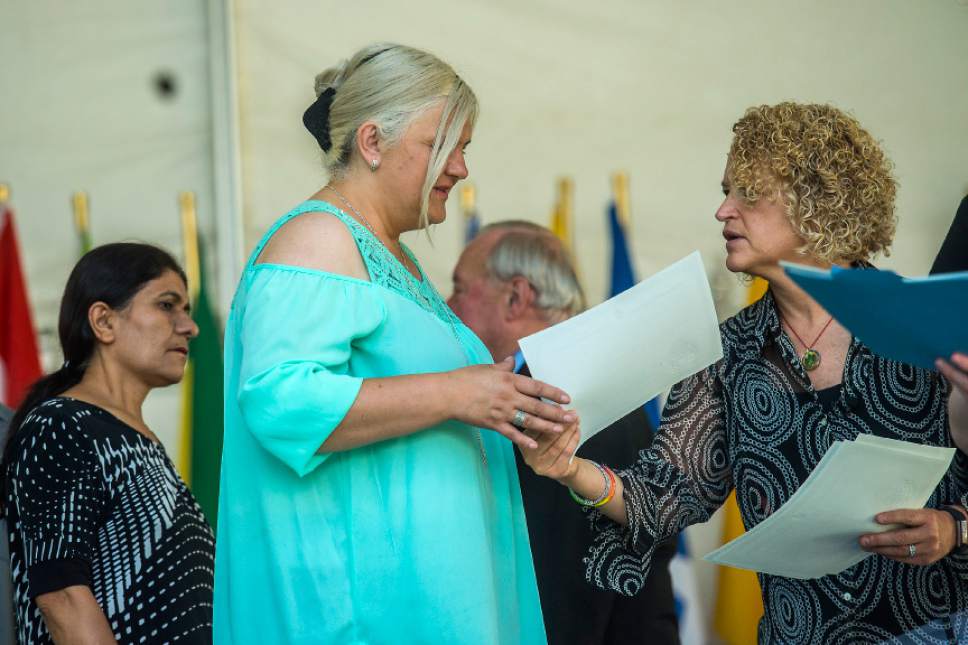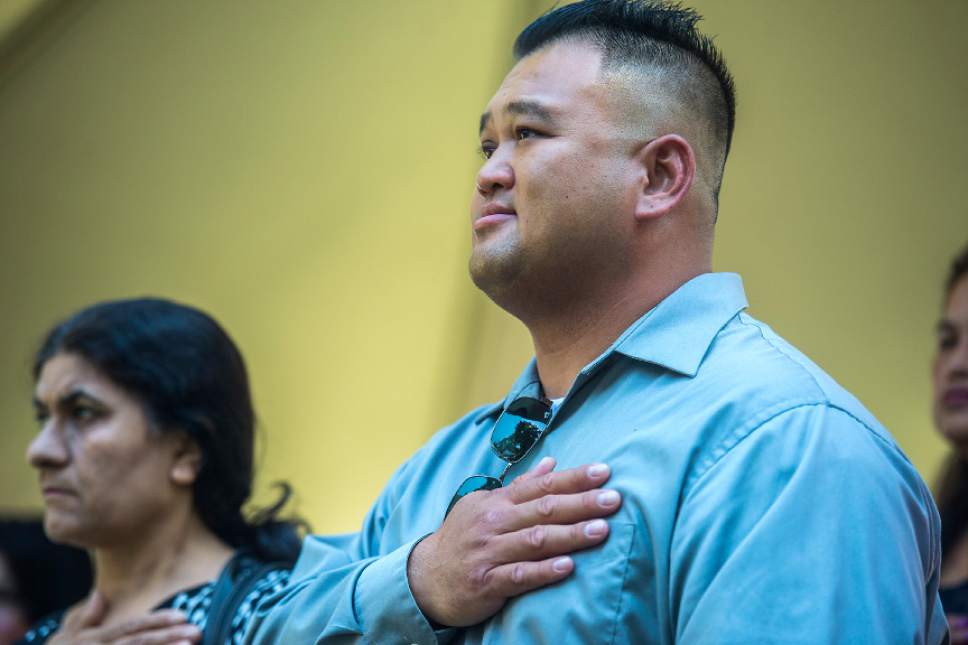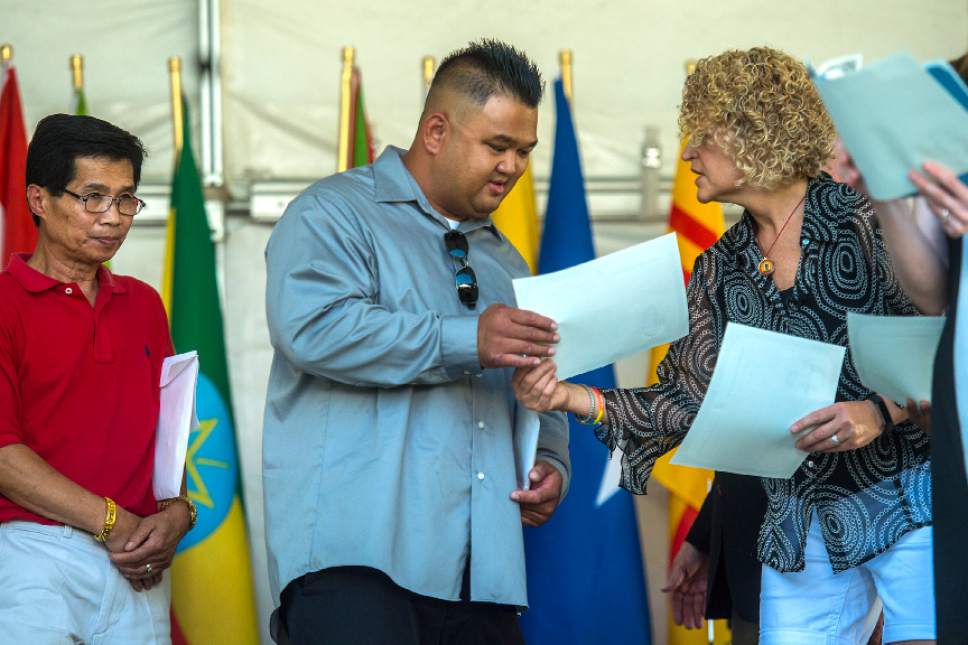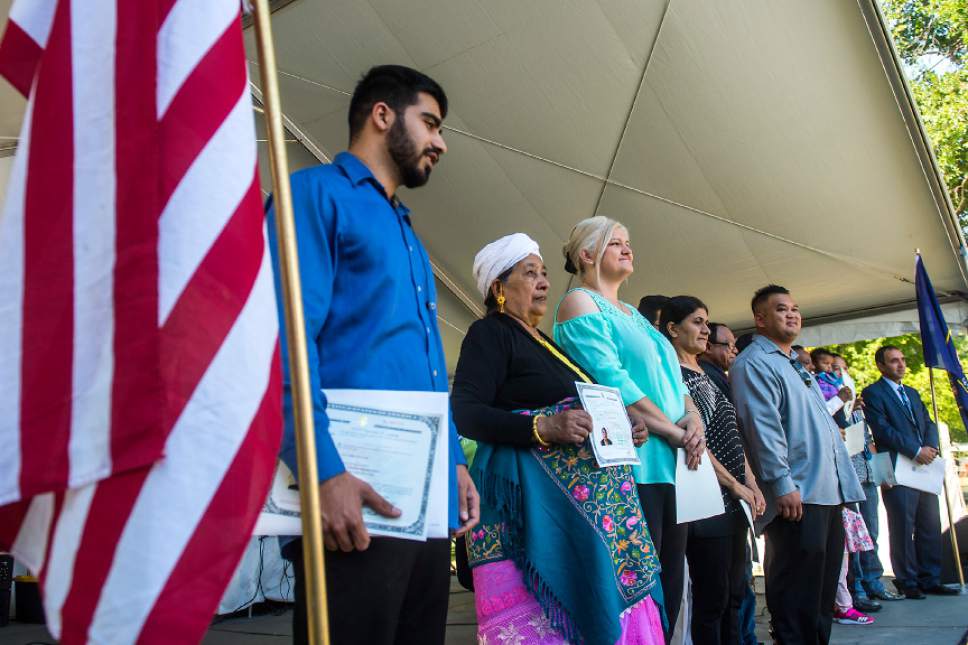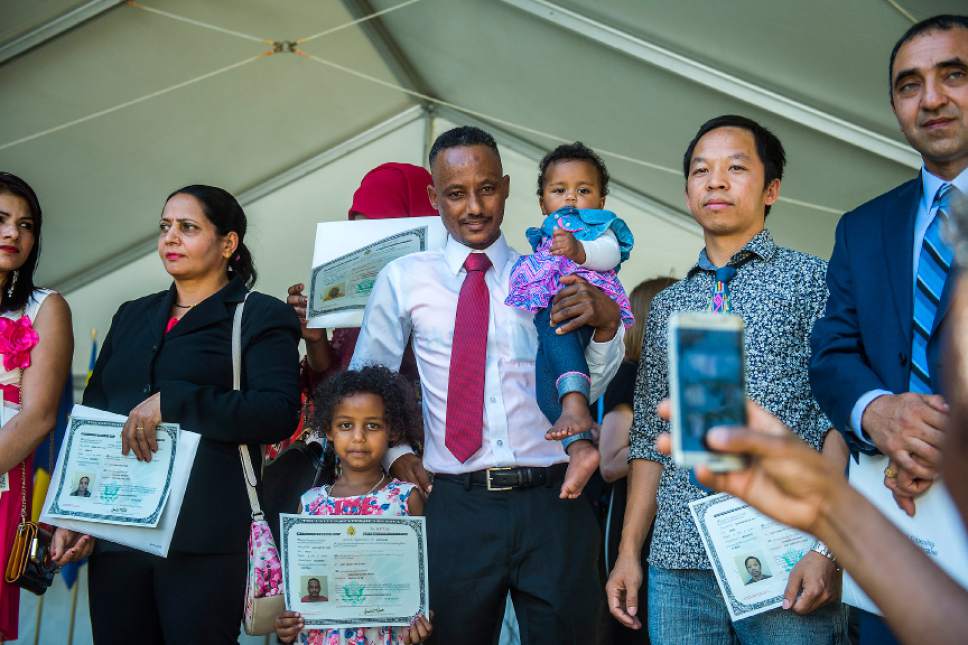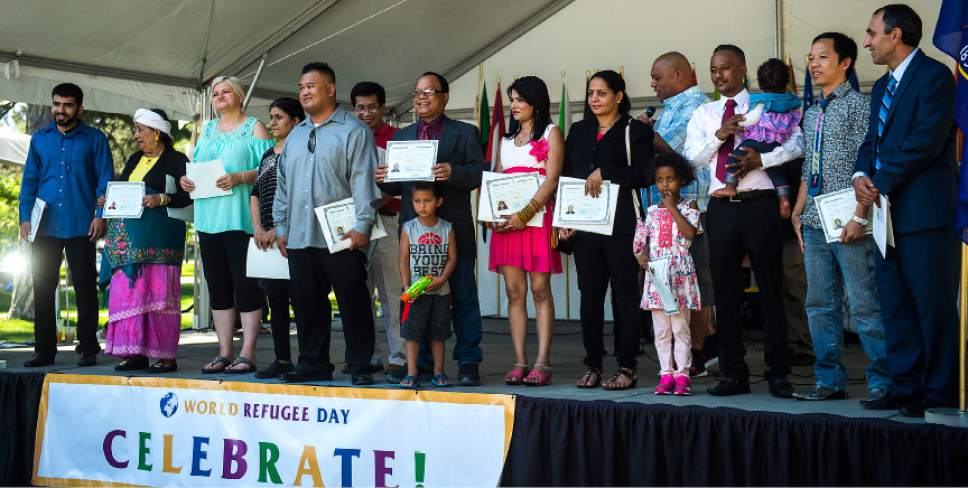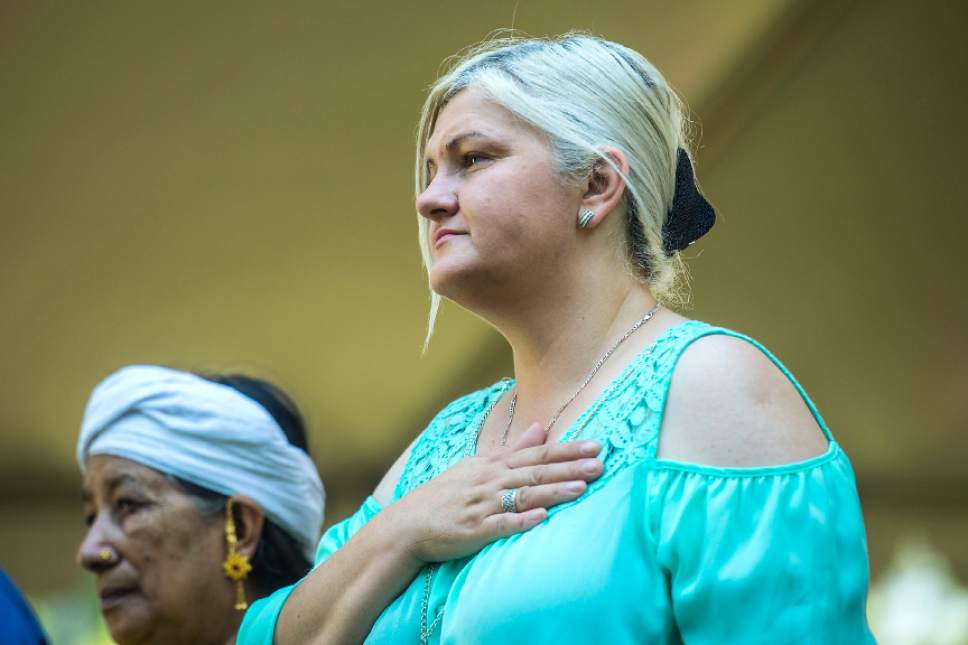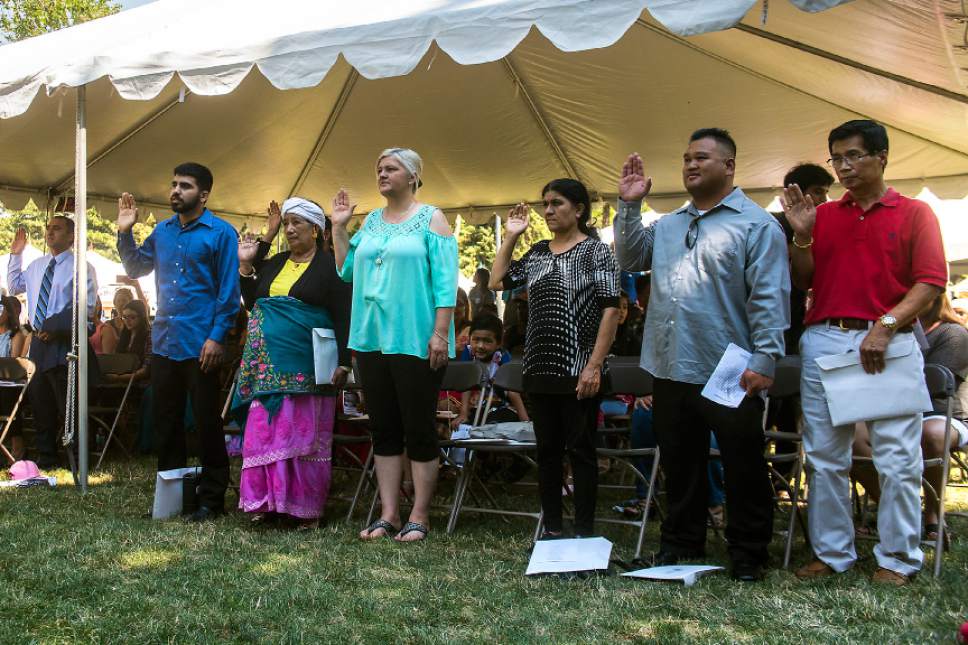This is an archived article that was published on sltrib.com in 2017, and information in the article may be outdated. It is provided only for personal research purposes and may not be reprinted.
A pregnant Fatima Mehmedovic and her husband left war-ravaged Bosnia to seek a better life in the United States in May 1997.
On Saturday, a little more than 20 years later, she raised her right hand and took the oath that finally makes her a U.S. citizen, like her two sons.
"We found our peace here," said Mehmedovic, who's 44 now and a resident of West Jordan, where she works for a grocery store chain. "There is so much here that makes us feel good and comfortable."
Mehmedovic was one of 13 refugees from nine countries — from Bhutan and Burma, to Iran, Iraq and Somalia — who took the citizenship oath in Liberty Park as part of 2017 World Refugee Day events.
The annual celebration draws about 3,000 people to the park for food, artisan crafts, games and live entertainment from more than 20 different ethnic communities around the world. The 2017 installment also began and ended with sports, including a 5K run, along with volleyball and soccer.
"Today is a day where we just come together and show off these different cultures and really learn about what makes these individuals so great," said Bethany Hyatt, spokeswoman for the Department of Workforce Services, which works to help refugees get on their feet after landing in Utah. "They are survivors … and they share so many of the values we have here in Utah; it's great to see how much we are similar."
Utah's refugee population in 2016 was nearly 60,000 and grows annually by about 1,200, a Workforce Services report shows. The majority live in the Salt Lake Valley. Resettlement efforts were expanded to Ogden in 2016.
Workforce Services works with Catholic Community Services and the International Rescue Committee to ensure that refugees get access to language and jobs training, health care and educational programs that ensure their success, Hyatt said.
A good number of those who come to Utah, she added, are women raising children on their own. Most do very well, Hyatt added, in part because Utah serves refugees for two years.
"I don't think any other state offers that kind of support," she said.
West Valley City resident Vilakone Lithamalay was an infant when his parents fled a Laotian refugee camp and resettled in Utah more than 35 years ago.
On Saturday, Lithamalay, who is 37 and works in a manufacturing plant, became the last person in his family to become a U.S. citizen. The delay, he said, was a matter of timing, not desire or heart.
"I love America. I've always considered it my home," he said. "I always wanted it on paper, and now I finally have that opportunity."
Salt Lake City Mayor Jackie Biskupski welcomed the 13 newly minted Americans after the swearing-in Saturday, noting that it wasn't so long ago that another group of refugees — members of The Church of Jesus Christ of Latter-day Saints — were filled with a similar hope for a better life.
"Regardless of where you trace your own roots, you came to us in a time of need and found your light in our community," the mayor said. "And we will always be a welcoming city."
Immigrants and refugees, Biskupski said, play an important role in American democracy and civic life.
"You remind those of us born here of what we often take for granted," she said. "Thank you for all that you have done and will do to keep the promise of America great."
Clutching her certificate of citizenship after the ceremony's end, a watery-eyed Mehmedovic said she was nervous and excited while taking the oath, even though she's lived here for so long.
And now that it's done?
"American," she said with a grin. "I feel American."
Twitter: @jenniferdobner


